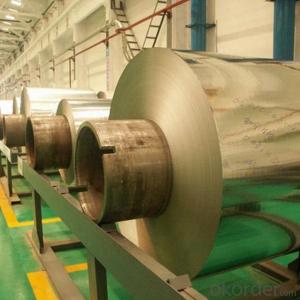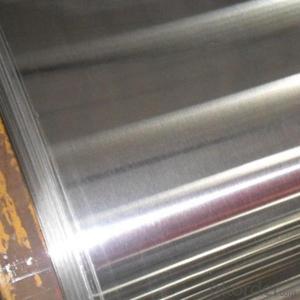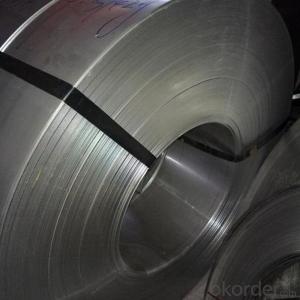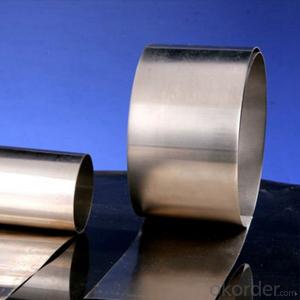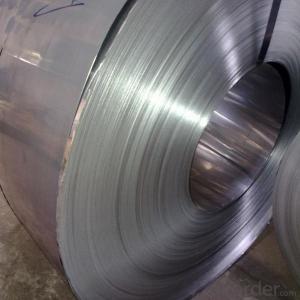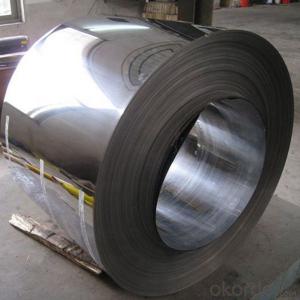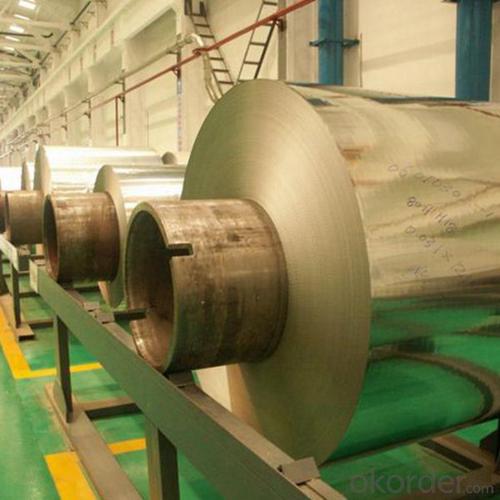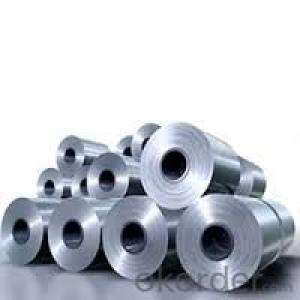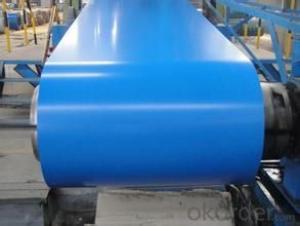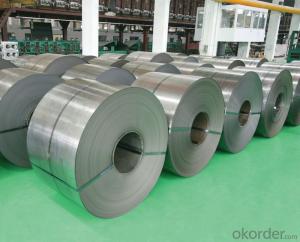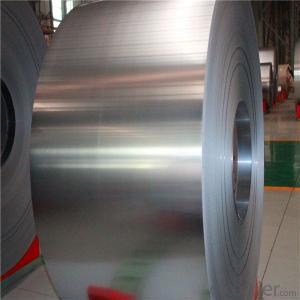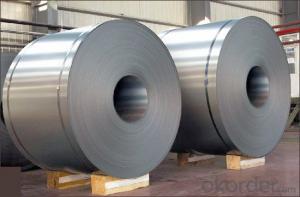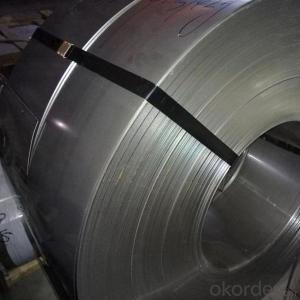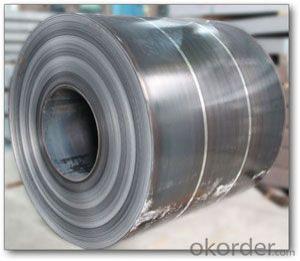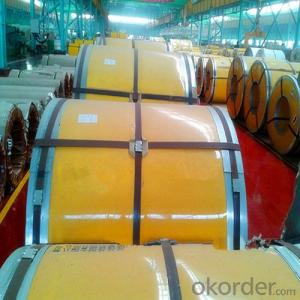Stainless Steel Coils NO.2B Best Quality Good Price
- Loading Port:
- Shanghai
- Payment Terms:
- TT OR LC
- Min Order Qty:
- 25 m.t.
- Supply Capability:
- 10000 m.t./month
OKorder Service Pledge
OKorder Financial Service
You Might Also Like
Specification
Description for Stainless Steel Coils/Sheets:
Prodcut:Stainless Steel Coil
Thinckness: 0.20mm-8.0mm
Width:1000mm, 1219mm(4 feet), 1250mm, 1500mm, 1524mm(5 feet),
1800mm, 2000mm, 2200mm, 2500mm,and customizable
Ni:0.8~1.2% Cu:1.4~1.5% Cr:14
Standard: ASTM, JIS, GB, BS, DIN etc
Grade: 200series&300series&400series
Surface finish: 2B, BA, 8K, 6K, Mirror Finished, No1, No2, No4, Hair Line with PVC
Manufacture technology: cold rolled/hot rolled
Thickness Tolerance: +/-0.1mm
Width Tolerance: +/-10mm
200 Seriers: 201,202
300 Seriers: 301, 304, 304L, 316L, 309, 310S,321
400 Seriers: 410, 410S, 409L,430
Our Service
1.High quanlity and reasonable price.
2.Customized on-demand.
3.Reasonable shipping and fast delivery.
4.Free sample.
Specifications for Stainless Steel Coils/Sheets:
ITEM | DESCRIPTION |
Commodity | Stainless Steel Coil |
Material | 201, 202, 301, 321, 304, 304L, 316, 316L, 309S, 310S, 410, 430, etc. |
Surface | 2B, BA, 8K, No. 4 No.1 |
Standard | AISI, ASTM, DIN, EN, GB, JIS, etc. |
Specification | 1. Thickness : 0.3mm -120mm |
Application | 1. Automotive: Automotive trim and molding/Difficult-to-form exhaust-system |
Process | Hot rolled / cold rolled |
Payment | L/C,T/T |
MOQ | 20 Ton |
Productivity | 700 tons per month. |
Package | Standard seaworthy export packing or according to the customers' request. |
Delivery Time | It is based on the order, normally within 30 days after receiving your advance payment. |
Note | We can produce other standard as the customers' requirement. |
Detail picture for Stainless Steel Coils/Sheets
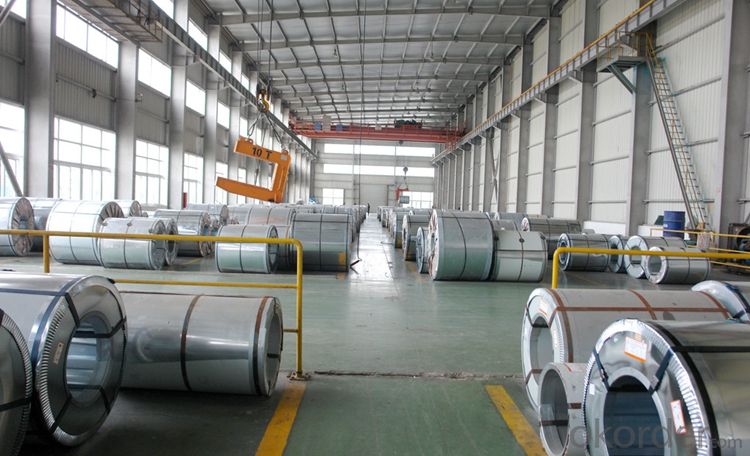
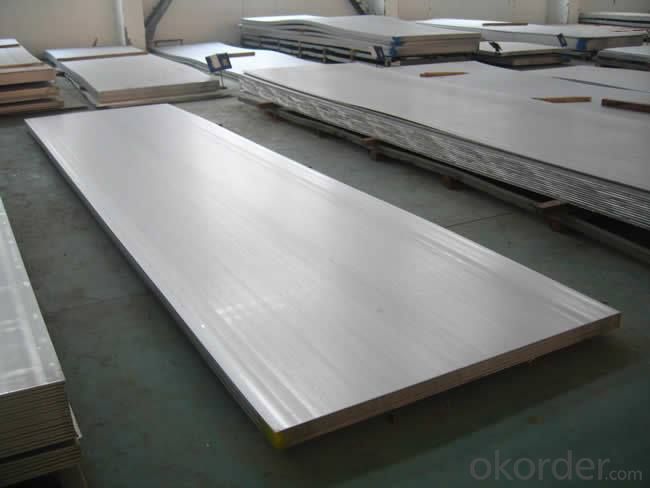
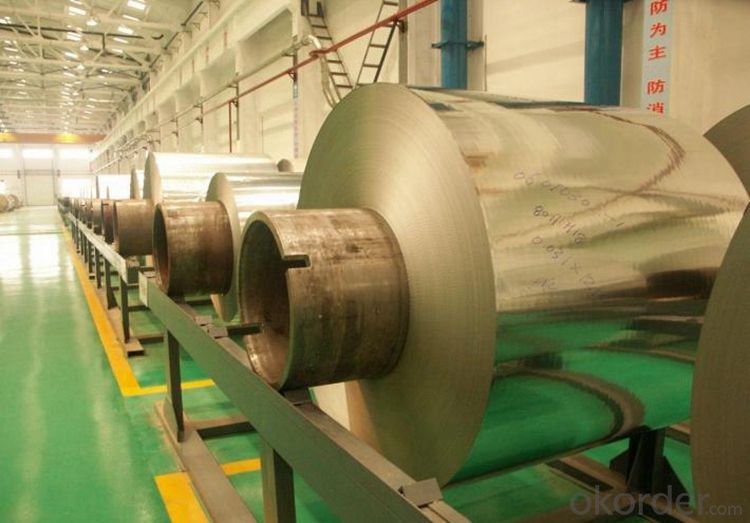
Application of Stainless Steel Coils
(1)Boiler heat exchanger,
(2)Chemical industries,
(3)Hardware fields,
(4)Construction material,
(5)Kitchen utensils,
(6)Building construction,
(7)Medical equipment,
(8)Chemical tank,
(9)Pipe etc
Export Markets for Stainless Steel Coils/Sheets:
Our target market is the international market. Every year we export most of products to countries like India, Pakistan, South Korea, Brazil, Australia, South Africa, Spain, Sri Lanka, Taiwan, Hong Kong, etc.
FAQ for Stainless Steel Coils/Sheets:
Q:What are the advantages of your company ?
A: We have many professionals, technical personnel, more competitive prices and best after-dales service than other stainless steel companies.
Q:Can you arrange the shipment ?
A: Sure we can help you with the shipment. We have forwarders who have cooperated with us for many years.
FAQ for Stainless Steel Coils/Sheets:
Q: How long is the delivery time?
A: Normally 30-40 days, but mostly according to the specific requirements or the quantity
Q: Could you send me sample?
A: We can supply you with the sample for free, but the delivery charges will be covered by customers.
- Q: I just got this aftermarket exhaust on my truck and it's recommended that it be welded, but the metal is aluminized steel. How do I mig weld aluminized steel?
- aluminized steel is just std steel with a coating applied to it to keep it from rusting. It welds just like std mild steel. You need to prep the joint and thats it. Use a wire wheel, brush, sandpaper or what ever to clean the joint of the pipes where you will weld. You don't have to get too crazy here. Just a quick brush/wipe with sand paper over the joint and your ready to weld. For mig welding, I would use a 75/25 gas mix, .023 or .030 solid steel wire, around 50-70 amp setting (on most migs this will be #2 heat setting) and around 3/10th to 4/10th wire speed. (some welders will list 0-10, others 0-100, so figure your scale, like 0-10 it would be 3-4, one that list it by 10's then it would be 30-40)
- Q: What are the different types of steel coil coatings available?
- There are several different types of steel coil coatings available, including polyester, polyurethane, siliconized polyester, fluorocarbon, and plastisol coatings. Each type of coating offers specific properties and benefits, such as durability, corrosion resistance, weatherability, and aesthetics, making them suitable for various applications in industries such as construction, automotive, and appliances.
- Q: There's this huge community of steelians (steelites?) in my town. Has anybody heard of this Dr. Steel?
- Here are twenty that I grew up listening to, such a lot of them within the loved ones auto in which I had 0 manage over what used to be performed. But I nonetheless love each one in every of them to nowadays... Sea Cruise- Frankie Ford Walk Don't Run- The Ventures Don't Worry Baby- The Beach Boys Bus Stop- The Hollies These Boots Are Made For Walking- Nancy Sinatra I Saw Her- Mamas Papas A Taste Of Honey- Herb Alpert Everybody's Talking At Me- Nilsson Superstar- The Carpenters Indian Reservation- Paul Revere The Raiders Come And Get It- Badfinger Tell Me Something Good- Rufus Come And Get Your Love- Redbone Higher Ground- Stevie Wonder Waterloo- ABBA How Long (Has This Been Going On)- Ace The Hustle- Van McCoy More More More- Andrea True Connection Shining Star- Earth, Wind Fire Got To Give It Up- Marvin Gaye
- Q: What are the different types of steel coil handling systems?
- There are several types of steel coil handling systems, including cradle systems, C-hook systems, coil grab systems, and coil transfer cars. These systems are designed to safely and efficiently handle steel coils of various sizes and weights in manufacturing and storage facilities.
- Q: How are steel coils used in the production of pipelines?
- Steel coils are an essential component in the production of pipelines. These coils, made from high-quality steel, are used to manufacture the pipes themselves. The process begins by unrolling the steel coil and cutting it into the desired size and length. The cut pieces are then shaped into cylindrical tubes using a process called pipe forming. Once the pipes are formed, they undergo various additional processes to enhance their strength and durability. This may include welding, heat treatment, and coating to protect against corrosion. Steel coils are also used to create the necessary fittings and connectors that are essential for connecting and joining the pipes together. The use of steel coils in pipeline production offers several advantages. Firstly, steel is a strong and durable material, making it ideal for handling the high pressure and stress that pipelines endure. Additionally, steel is resistant to corrosion, which is crucial for pipelines that transport various substances such as oil, gas, or water. Furthermore, steel coils allow for efficient production processes. The uniformity of the coils ensures consistent pipe dimensions, resulting in easy assembly and installation. The versatility of steel also allows for customization, enabling manufacturers to produce pipes of various sizes and specifications to meet specific project requirements. In conclusion, steel coils play a vital role in the production of pipelines. They are used to create the pipes themselves, as well as the necessary fittings and connectors. The use of steel ensures strength, durability, and corrosion resistance, making it the preferred material for pipelines. Moreover, steel coils enable efficient production processes and offer versatility in terms of customization.
- Q: Why?Which one should i get? I am just starting to learn Guitar. Which one would be better for me? What is the difference? I already got the acoustic nylon but i might return it... if the steel is better.
- A nylon string guitar, more properly called a classical guitar, is used almost exclusively for playing classical music. Unless you're interested in classical music you should avoid this guitar. Also, it is only played fingerstyle so you will not be able to learn how to use a pick, which is a valuable, necessary skill. Steel string acoustic guitars are used for a wide variety of music including rock, pop, folk, bluegrass, and more. This is a much more versatile guitar and is the one you probably should have bought.
- Q: What other metal is used to make rings? My girlfriend is allergic to stainless steel, but she wears a silver/grayish color ring, but I'm not sure what metal it is. Any ideas? Thanks!
- Silver, white gold and titanium are quite common.
- Q: does regular steel rust? or is it all the same.
- Dear, Thank you, am also fine like you then dear yeah is the same.
- Q: I'm assuming that brass is flexible, expands and then bounces back to it's original shape. But if aluminum and steel expand and don't contract wouldn't they cause guns to jam more often for example?
- This Site Might Help You. RE: Why can aluminum and steel casings not be used for reloading? I'm assuming that brass is flexible, expands and then bounces back to it's original shape. But if aluminum and steel expand and don't contract wouldn't they cause guns to jam more often for example?
- Q: My mother is in a weilding class, and today she accidentally welded Galvanized Steel. She doesn't feel good and she wants to know what the symptoms are for Galvanized Poisoning from breathing in the Fumes. Please help, I am worried for her.
- Galvanized steel is nothing more than regular steel with zinc added. However, unless you wear the proper gear or ventilate the fumes away, the zinc can cause heavy metal poisoning. As someone who has suffered from it before, usually the symptoms are an upset stomach, feeling queasy, diarrhea, and sometimes hallucinations. If it is bad, you start getting joint pain, a metallic taste in your mouth, and develop a fever. Usually, you can treat mild zinc poisoning by drinking lots of fluids and flushing out your system as much as possible. Still, if the problems persist for more than an hour or so, it can be lethal with many blacksmiths having died as a result of it. If she still feels bad, call a poison control center and tell them she breathed in zinc fumes. They will probably tell you to go to the ER to start treatment. It is not something you wait out.
Send your message to us
Stainless Steel Coils NO.2B Best Quality Good Price
- Loading Port:
- Shanghai
- Payment Terms:
- TT OR LC
- Min Order Qty:
- 25 m.t.
- Supply Capability:
- 10000 m.t./month
OKorder Service Pledge
OKorder Financial Service
Similar products
Hot products
Hot Searches
Related keywords
